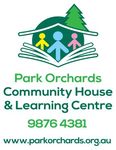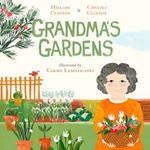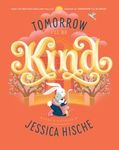Welcome to 2020 - Park Orchards Learning ...
←
→
Page content transcription
If your browser does not render page correctly, please read the page content below
ur Service
Welcome to 2020 NEW! Family
Playgroup
We would like to extend a warm welcome to our
new families and say welcome back to our existing Would you like to meet local families and have an
families. opportunity to play with your child/ren in a friendly
and supportive environment?
We look forward to an exciting and enriching year
ahead for your children in a warm and welcoming For parents or carers and their children, aged 0-6
environment. years old.
Please do not hesitate to speak to an Educator if you Every second Saturday starting 29th February 2020
wish to discuss your child’s interests or needs.
Duration 1.5hrs (9:30 AM - 11:00 AM)
Reminder to please label all items of clothing, lunch
boxes and backpacks. This makes it easier to put the Venue 572 Park Rd Park Orchards in the new
items back in the appropriate bags. Childcare Centre (behind the office building)
Call the office on 9876 4381 or see our website for
more details
https://www.parkorchards.org.au/Courses/FamilyPla
ygroup.aspxwill pitch new social, economic and political responses essential
for creating the transition to a safe climate.
Find out more at www.slf2020.org
WORLD WETLANDS DAY – FEBRUARY 2
Wetlands are rich with biodiversity and are a habitat for a dense
variety of plant and animal species. Latest estimates show a
global decline of biodiversity, while wetlands are disappearing
SUSTAINABLE LIVING FESTIVAL (SLF) – FEBRUARY 1-29 three times faster than forests. This year’s theme is ‘Wetlands
Everything we care about is now under threat. To enable a and Biodiversity’ it’s a unique opportunity to highlight wetland
sustainable world, we must urgently address the climate emergency. biodiversity its status, why it matters and promote actions to
In 2020, SLF explores the impacts of the climate emergency and reverse its loss. Find out more at worldwetlandsday.org
SPICED SWEET POTATO & CHICKPEA Beautiful books full
FRITTERS WITH HARD BOILED EGGS of heart and fun.
PREP 15 min | COOK 15 MINS | SERVES 6
INGREDIENTS 1/3 cup (50 g) plain flour
1 x 400 g can of chickpeas,
drained and rinsed thoroughly
½ tsp baking powder TOMORROW I’LL BE KIND
Sea salt and pepper, to
500 g sweet potato, season JESSICA HISCHE
peeled and grated Olive oil, to fry in In a follow-up to Tomorrow I’ll Be Brave, award-winning illustrator
¼ cup chives, finely chopped Jessica Hische brings to life another series of inspirational words
100 g feta, crumbled Soft boiled egg and salad: and scenes with her lovely hand-lettering and adorable illustrations.
1 heaped tbsp tikka masala
6 eggs This uplifting and positive book encourages kids to promise that
spice blend
2 eggs Salad greens tomorrow, they will be grateful, helpful, and kind. It’s a reminder
to all readers, young and old, that the smallest kind gesture can
METHOD: make the biggest difference in the world–we just have to
To make fritters remember to be kind to one another.
1. Place the chickpeas into a large bowl and mash slightly
using a fork. Add the grated sweet potato, chives, feta, tikka
masala spice blend, 2 eggs, flour, baking powder, salt and ONE THOUSAND THINGS
pepper and mix thoroughly to combine. ANNA KOVECSES
2. Heat a fry pan to medium heat. Cover the base of the fry A visual encyclopedia of things to spot and say with a difference.
pan with a thin layer of olive oil. Gently place tbs of the mix Find out what one thousand really looks like. Search-and-find Little
into pan and cook for 4 mins or until golden and the fritter
Mouse on every page and discover new words with every turn of
is holding together.
3. Gently flip each fritter and cook for another 3 mins or until the page. Compulsive and instructional fun, minimal and modern.
golden and cooked through.
4. Place the fritters on a plate lined with kitchen paper and
continue frying until no batter remains. Set aside.
GRANDMA’S GARDENS
HILLARY CLINTON AND CHELSEA CLINTON
To make soft boiled eggs From mother-daughter team Hillary Clinton and Chelsea Clinton
1. Prepare an ice bath. Set aside. comes a celebration of family, tradition and discovery, and an
2. Bring a large pot of water to the boil then reduce heat to ode to mothers, grandmothers and the children they love.
simmer. Carefully add 6 eggs to the pot of simmering Grandma Dorothy shared her love of gardens with her daughter,
water and cook for 7 minutes. Hillary, and her granddaughter, Chelsea. She taught them that
3. Carefully remove eggs and place into ice bath until cool gardens are magical places to learn, exciting spaces for discovery,
enough to handle. Peel eggs and slice in half. quiet spots to spend time with family and beautiful areas to share
stories and celebrate special occasions. But most of all, she taught
Recipe and Image from ‘australianeggs.org.au’. them that in her gardens, her love grew and blossomed.FOCUS: How can you help your child settle into childcare?
Starting or resuming childcare can be an emotional experience Encourage your little one to pack their bag with essentials they
for both you and your child. Children especially can often will need for the day. If they are too young to pack their bag
experience some difficulty settling into a new environment, themselves, ask them if they would like to take a toy/book with
particularly if they find it hard to separate from family or familiar them. Pack a comforter – a toy or blanket that is something
caregivers. This is part of an information sheet from familiar from home for them.
startingblocks.com.au that offers some suggestions that can help Take the time to have a nice conversation at the breakfast
you support your child during the settling in period. You will of table. Tell them the time at what you’ll be picking them up, and
course need to be patient because they may cry, be grumpy or perhaps offer them a reward if they behave well at their care
throw tantrums for an initial time as they get used to the new centre.
environment. Talking with children and encouraging them to voice any
concerns or anxieties they may have is a helpful strategy.
Prepare them for separation For your peace of mind, it can be helpful to call the service later
to see how your child settled. Children who become very upset
Talk about child care with your child and let them know that you
when they are left often settle very quickly and happily once the
are happy and confident that they will have a good time and will be
actual separation is over. The service should enable you to
cared for.
contact them throughout the day.
If possible, start with shorter or fewer days then gradually
increase their time spent at the care centre. Once they develop a You may also want to speak to the educators at childcare about
settling routine, they should be more comfortable. how you can better support your child’s transition.
Don’t let your emotions or anxieties affect your child. Try and
hold back your tears when you drop them off. How you can reconnect with your child after a day in childcare:
Say ‘goodbye’ confidently and reassure them when you leave that It’s not only a new experience for your child, it’s also important
you (or someone else) will be back later to collect them. for you to know how they feel about going to their early
Give your child sufficient time to say their goodbyes in the childhood education and care service. This will help you connect
morning. Reach the childcare centre early so you have time to and build a strong relationship with your child. After you pick
prepare your child for a good day. them up from their centre, give them your undivided attention.
They might be grumpy because they haven’t seen you the whole
Comfort them day, so shower them with all the love you can. Create a
Ask your child if they would like to take their favourite toy or meaningful conversation with them after their day at a service.
colour book to the centre.
Find a preferred staff member that your child can be left with Here are some suggestions:
when you drop them off for the day. Ask them about their favourite activities of the day.
Talk to them about the friends they have made. Ask them to
Spend some time settling your child into a favourite activity
name a few children who you know your child is friendly with or
before you leave.
spends time playing with.
Inform the service about what comforts your child and discuss
If the centre provided food, ask your child how it was and who
how you manage activities or times of the day they find unsettling.
did they have it with.
For example, does your child have a toy or blanket that helps them
Talk to them about their favourite educator at childcare and
to settle?
what they like about them.
Show empathy – in the morning when you see your child upset
Ask them if their educator read them any story, which one was
on your way to childcare, talk to them. It is advised not to share
it, and what they liked about it.
your own worries but tell your child that they’ll be okay. Ask them
Mention some items that your child would see or play with at
to share their feelings with you. Listen to them and tell them what
the service, as this helps them recall situations. For instance, ask
they are feeling is normal and it’s a big step for them as they are
them what they and their friends made with the blocks.
growing up.
Ask them if they learned anything new.
Where possible, organise play dates outside of childcare. This will
Use images or notes from the educators at the centre for
help your child be more comfortable with the other children at the
conversation. For example, “Look at this lovely photo of you at
centre.
the sandpit. What did sand feel like in your toes?”
Encourage Them
Starting Blocks (2020, January 15). How can you help your child
Every time you go to pick up your child from their centre, tell
settle into care? Retrieved from startingblocks.gov.au/other-
them they did great that day.
resources/factsheets/how-can-you-help-your-child-settle-into-
child-
care/?fbclid=IwAR0Wp7qwX9ElOsWYoCqzGbJOQQbfqgWFEMhU
2KjVCXiouAFkwBgPPMMpJyI
Noisy letter Jump
Supplies: Chalk. Choose a safe concrete space and write large letters your child is familiar with there.
You could choose letters from their name, small groups of letters, or sight words they are learning.
When you call out a letter have your child say its name/sound in a funny way: yell it, say it slowly, say
it quickly and then ask them to find the letter and jump on it. Repeat the activity until all the letters
have been jumped on.
Image and activity from: theimaginationtree.com/noisy-letter-jump-phonics-game/HEALTH & SAFETY: Internet Safety for Pre-schoolers
Pre-schoolers like going online to look at videos or to play games.
They can do this using computers, mobile phones, tablets, TVs and
other devices. There are safety risks for pre-schoolers online,
although pre-schoolers won’t usually be exposed to as many risks
as older children because they’re less likely to be using the internet
independently. When you take some practical internet safety
precautions, you protect your child from risky or inappropriate
content and activities. And your child gets to make the most of her
online experience, with its potential for learning, exploring, being
creative and connecting with family and friends.
Internet safety risks for pre-schoolers
Check that games, websites and TV programs are appropriate
There are three main kinds of internet safety risks for children: for your child. For example, you can look at reviews
on Common Sense Media.
Content risks: these risks include content that children might find
Make sure older siblings follow your internet safety rules
upsetting, disgusting or otherwise uncomfortable. Examples are
when they go online with your pre-schooler. Rules might
pornography, violence, images of cruelty to animals or programs
include watching only age-appropriate programs.
meant for older children.
Set up a folder with bookmarks for your child’s favourite apps
or websites so that she can easily find them. You can set up
Contact risks: these risks include children coming into contact with
folders and bookmarks on all the devices that your child uses.
people they don’t know. For example, a child might use a
communication app and talk to a stranger. Check privacy settings, use parental controls, block in-app
purchases, and disable one-click payment options and location
Conduct risks: these risks include children acting in ways that might services on your devices.
hurt others. For example, a child might destroy a game his friend or
sibling has created. Accidentally making in-app purchases is another Teaching safe and responsible online behaviour
conduct risk. You can help your child learn how to use digital media and the
internet safely, responsibly and enjoyably. If you teach your
Protecting your child from internet safety risks: tips child how to manage internet safety risks and worrying
experiences for himself, he’ll build digital resilience. This is the
You play a key role in reducing the risks that your child is exposed to ability to deal with and respond positively to any risks he
on the internet. There are many practical things you can do to help encounters online. You can do this by: going online with your
your pre-schooler stay safe while she’s online. child, being a good role model, teaching your child about good
and bad content and teaching your child about in-app
Here are some ideas: purchases.
Use digital media and the internet with your child or make sure
February 11 is ‘Safer Internet Day’. Use this day to start a
you’re close by and aware of what your child is doing online. This way
conversation with your child about internet safety. Got to
you can act quickly if your child is concerned or upset by something
esafety.gov.au/safer-internet-day/families to find a wide range
he’s seen.
of resources to assist your family’s internet use and register
Create a family media plan. Your plan could cover things like your support for ‘Safer Internet Day’ while your there.
screen-free areas in your house, internet safety rules like not giving
out personal information, and the programs, games and apps that
are OK for your child to use. Rasingchildren.net.au (2020, January 11). Internet Safety: Children 3-5
Use child-friendly search engines like Kiddle, or content providers Retrieved from https://raisingchildren.net.au/preschoolers/play-
like ABC Kids, CBeebies, YouTube Kids or KIDOZ. learning/screen-time-healthy-screen-use/internet-safety-3-5-years
Prevent air pollution:
AIR QUALITY
In your home: Do not smoke, ensure your oven ventilates
Prior to our recent bushfires air quality was never really a
properly, use non-toxic cleaning product, Use a dehumidifier
concern for most Australians. We are lucky, generally we look
or/and air conditioner to reduce dampness, reconsider your
outside and the skies are clear and the air is fresh and
use of any aerosol sprays. Dust regularly, keep lids on scented
breathable. Bushfire air pollution has changed that so much so
candles.
that some days it is actually dangerous to be outside. So how
do you check air quality and how can you prevent adding to
Outside: Drive less, ensures engines run properly, reduce
the problem.
fireplace use, don’t burn rubbish, use environmentally safe
paints.
To check air quality in your area go to:
https://www.epa.vic.gov.au/air-quality/current-air-quality
https://www.consumerreports.org/health-wellness/avoid-
the-negative-health-effects-of-air-pollution/
You may need to change your planned activities when
considering your families risk factors and the current reading.You can also read

























































